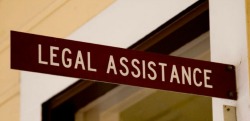
SOME USEFUL LINKS
INTEREST
The Courts of Justice Act allows for recovery of pre-judgment and post-judgment interest. The rate is dependent upon whether or not you have a contractual interest rate. By contractual, I mean that you properly disclosed and your customer agreed to an annual interest rate. The rate must be agreed to in writing at the time of or prior to the debt arising. Section 347 of the Criminal Code tells us that the criminal interest rate is 60%. You could technically charge that but not too many people do. In the absence of a contractual rate, you are limited to interest at the Courts of Justice Act rate. Click on the interest rates link to the left and you will see the CJA rates have been 1.3 percent pre-judgment and 3.0 post-judgment for some time now. Post- judgment interest at the CJA rate is guaranteed. Everything else is up to a judge. Interest and court costs (in most provinces) are over and above the $25,000 limit. In other words you can sue for $25,000 plus your interest on $25,000.
COSTS
Disbursements are the fees you pay to use the small claims system. This includes the $75.00 you pay as an infrequent claimant to file, $35.00 for a default judgment and so on. Regardless of whether or not you won everything you sued for, you will always be awarded your disbursements. The rules allow for up to $60.00 for recovery of process serving fees. If you serve documents yourself, you recover nothing. The rules also allow up to 15% of the amount claimed to go towards any expenses or costs incurred. This includes legal fees which could be associated with a lawyer, articling law student or licensed paralegal. The 15% percent is up to a judge and is dependent on party conduct and how well you proved your case.
LIMITS AND WHERE CAN I USE MY JUDGMENT?
You have two choices for jurisdiction when you initiate a claim. You can start your claim where the debtor resides or carries on a business. You may also start your claim where the cause of action arose. If you choose the latter, it requires an affidavit of jurisdiction form 11A. Enforcement of a judgment is always done where the debtor resides or carries on a business. For instance, your debtor may have obtained credit by approaching you in Ontario. The debtor works in the oil patch. You can obtain judgment in Ontario and enforce it in Alberta. There are rules around this, however this is the short version. Your judgment is good anywhere in Canada except Quebec. It’s good in any U.S state except Louisiana. It’s good anywhere that a common law systems exists around the globe. Here are the limits from West to East in Canada:
- British Columbia $25,000
- Alberta $50,000
- Saskatchewan $20,000
- Manitoba $10,000
- Ontario $25,000
- Quebec $15,000
- New Brunswick $12,500
- Prince Edward Island $8000
- Nova Scotia $25,000
- Newfoundland $25,000
WHAT DOES THE SMALL CLAIMS COURT HEAR? It is easier to tell you what the small claims doesn’t here. It has no jurisdiction over residing residential tenants, real estate, family or the recovery of money or personal property over the prescribed amount of $25,000. You cannot obtain much in the way of equitable relief. In other words you can’t make people do things or stop them from doing them (injunction). That is about it for excluded areas. The translation is you can do just about anything in the Ontario Small Claims Court. This includes but is not limited to:
- Sue for damages
- Sue for unpaid accounts
- Sue for personal injury
- Sue for breach of trust including under the Construction Lien Act
- Sue a discharged bankrupt for value of security not returned or for your debt if you have proof of fraud (You want legal advice here for sure)
- Validity of personal property security agreements
- Repair and Storage Liens
- Sue to recover personal property
Keep in mind, if you make a vexatious or frivolous claim you may be penalized by the court. There may be an order against you for a penalty plus having to pay the legal costs of the other party. You should legal advice before you initiate a claim to see if you have a legitimate basis to your claim.